PLATO
The Last Days of
Socrates
Euthyphro, Apology,
Crito, Phaedo
Translated with Introductions and Notes by
CHRISTOPHER ROWE
PENGUIN BOOKS
PENGUIN BOOKS
Published by the Penguin Group
Penguin Books Ltd, 80 Strand, London WC2R 0RL , England
Penguin Group (USA) Inc., 375 Hudson Street, New York, New York 10014, USA
Penguin Group (Canada), 90 Eglinton Avenue East, Suite 700, Toronto, Ontario,
Canada M4P 2Y3 (a division of Pearson Penguin Canada Inc.)
Penguin Ireland, 25 St Stephens Green, Dublin 2, Ireland (a division of Penguin Books Ltd)
Penguin Group (Australia), 250 Camberwell Road, Camberwell, Victoria 3124, Australia
(a division of Pearson Australia Group Pty Ltd)
Penguin Books India Pvt Ltd, 11 Community Centre, Panchsheel Park, New Delhi 110 017, India
Penguin Group (NZ), 67 Apollo Drive, Rosedale, North Shore 0632, New Zealand
(a division of Pearson New Zealand Ltd)
Penguin Books (South Africa) (Pty) Ltd, 24 Sturdee Avenue, Rosebank, Johannesburg 2196, South Africa
Penguin Books Ltd, Registered Offices: 80 Strand, London WC2R 0RL , England
www.penguin.com
This translation first published in Penguin Classics 2010
Translation and editorial material copyright Christopher Rowe, 2010
All rights reserved
The moral right of the translator has been asserted
Except in the United States of America, this book is sold subject to the condition that it shall not, by way of trade or otherwise, be lent, re-sold, hired out, or otherwise circulated without the publishers prior consent in any form of binding or cover other than that in which it is published and without a similar condition including this condition being imposed on the subsequent purchaser
ISBN : 978-0-14-196588-8
PENGUIN  CLASSICS
CLASSICS
THE LAST DAYS OF SOCRATES
PLATO (c. 424347 BCE) stands, with his teacher Socrates and his pupil Aristotle, as one of the shapers of the whole intellectual tradition of the West. He came from a family that had long played a prominent part in Athenian politics, and it would have been natural for him to follow the same course; the reason for his not doing so, according to the seventh of the collection of letters attributed to him (all of them almost certainly inauthentic), was his disillusionment with the kind of politics that could lead, among other things, to the execution in 399 of Socrates. Rather less plausibly, the same letter suggests that Platos several visits to the court of Dionysius II, tyrant of Syracuse in Sicily, were motivated by a desire to put his political theories as developed above all in the master-work, Republic into practice. The reform of society, on an ethical basis, certainly remained one of his central theoretical concerns. However, the focus of his thinking was on ethics itself, combined with a distinctive metaphysics and an equally distinctive view of the nature of the physical world. In the mid-380s, in Athens, he founded the Academy, the first permanent institution devoted to philosophical research and teaching.
Plato wrote over twenty philosophical dialogues, appearing in none himself (most of them have Socrates as chief speaker). His activity as a writer seems to have lasted over half a century; few authors in any language could claim to rival his peculiar combination of brilliant artistry and intellectual power.
CHRISTOPHER ROWE was until 2009 Professor of Greek in Durham University, where he moved in 1995 from the H. O. Wills Chair of Greek in the University of Bristol. His publications include The Cambridge History of Greek and Roman Political Thought (edited with Malcolm Schofield, 2000), New Perspectives on Plato, Modern and Ancient (edited with Julia Annas, 2002), Platos Lysis (with Terry Penner, 2005), and Plato and the Art of Philosophical Writing (2007). In Sarah Broadie and Christopher Rowe, Aristotle, Nicomachean Ethics (2002), Sarah Broadies philosophical commentary is accompanied by Christopher Rowes translation. He has also translated, and/or written commentaries on Platos Phaedrus (1986), Phaedo (1993), Statesman (1995) and Symposium (1998); his translation of Phaedrus appeared in Penguin Classics in 2005. In the Queens Birthday Honours for 2009 he was made an OBE for services to scholarship.
Chronology
We know as little about Platos life as we do about most ancient figures. The chronology of his writings with the exception of the Apology, all are in dialogue form is particularly uncertain. Nevertheless, studies of his style have resulted in a broad division of the works into three groups, which is reflected in the (very rough) chronology below. For this division, see especially Charles Kahn, On Platonic Chronology, in Julia Annas and Christopher Rowe (eds.), New Perspectives on Plato, Modern and Ancient (Cambridge, MA, 2002), pp. 93127. (Only certainly genuine works are listed.)
c. 424 BCE Birth of Plato, son of Ariston. The story that the name Plato derived from the adjective platus, broad (referring to the width of the great mans shoulders, to his intellectual capacity or the breadth of his style) has been discredited. (The usual date given for Platos birth is 428 or 427; I have accepted the arguments of Debra Nails for placing the birth some three or four years later: Debra Nails, The People of Plato (Indianapolis, IN/Cambridge, MA, 2002).)
The defeat of Athens in the great war against Sparta (the Peloponnesian war) signals the temporary end of the democracy which had governed Athens for most of the previous hundred years. It is replaced by a junta of oligarchs, at least two of whom are members of Platos immediate family. The Thirty Tyrants, as they become known, last only a few months before being overthrown in a civil war and replaced by a revived democracy.
Under the new democratic government, Socrates Platos mentor and friend for up to ten years previously is brought to trial on charges brought by private prosecutors. The charges are failing to recognize the gods recognized by the city and of introducing new divinities in their place; also of corrupting the young. Socrates condemnation and subsequent execution by hemlock poisoning are the last straw: Plato more or less withdraws from the world of practical politics.
390s Plato may have spent some time out of Athens, travelling both in Greece and around the eastern Mediterranean. Meanwhile, he is beginning to publish, i.e., to release works to be copied for, and read by, others.
390s380s Plato composes a large and varied group of works, in alphabetical order as follows: Apology of Socrates (i.e., Defence of Socrates), Charmides, Cratylus, Crito, Euthydemus, Euthyphro, Gorgias, Hippias Minor, Ion, Laches, Lysis, Menexenus, Meno, Phaedo, Protagoras, Symposium. The relative dating of the items in this group is controversial, though it may be that Cratylus, Phaedo and Symposium were among the last written.
389388 Plato visits Sicily and southern Italy and establishes contact with Pythagoreans in the area.
c. 387 Plato founds the Academy, an institute for research and teaching, adjacent to one of the main gymnasia of Athens, sacred to the local hero Academus.
380s370s Second group of dialogues: Parmenides

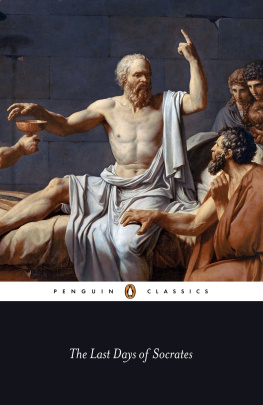

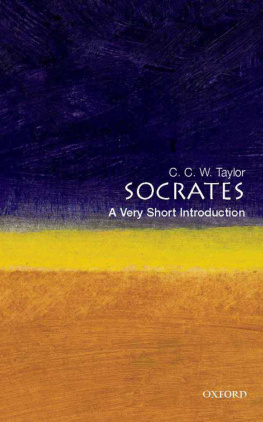
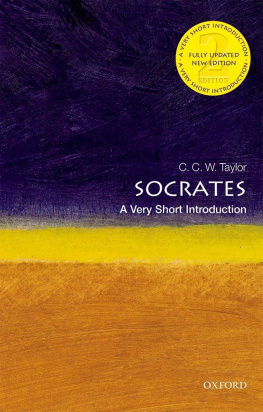
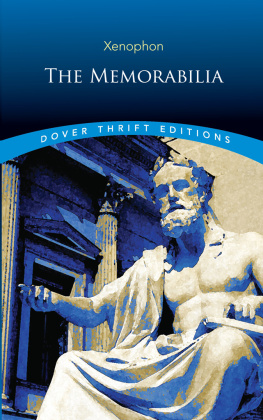

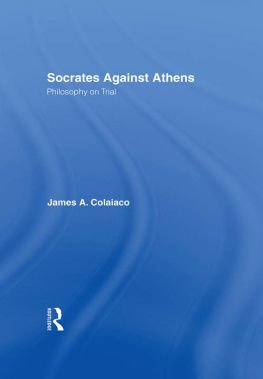

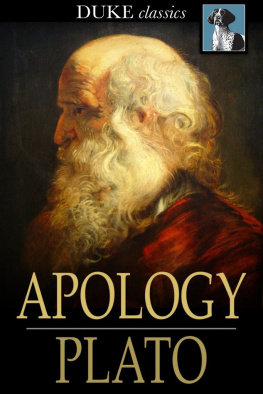
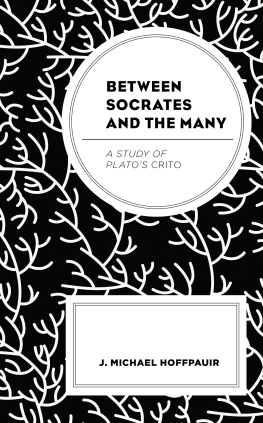
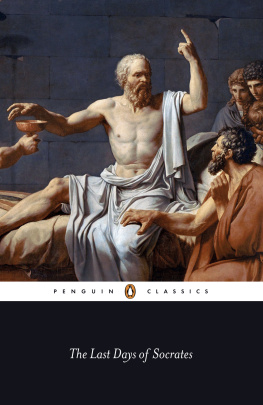
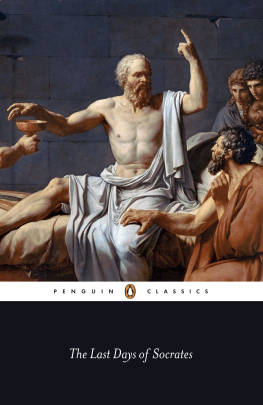
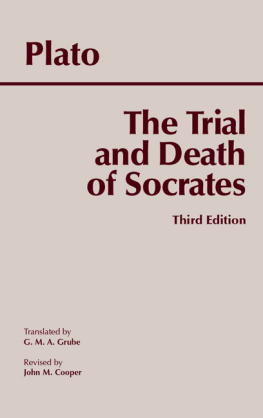
 CLASSICS
CLASSICS